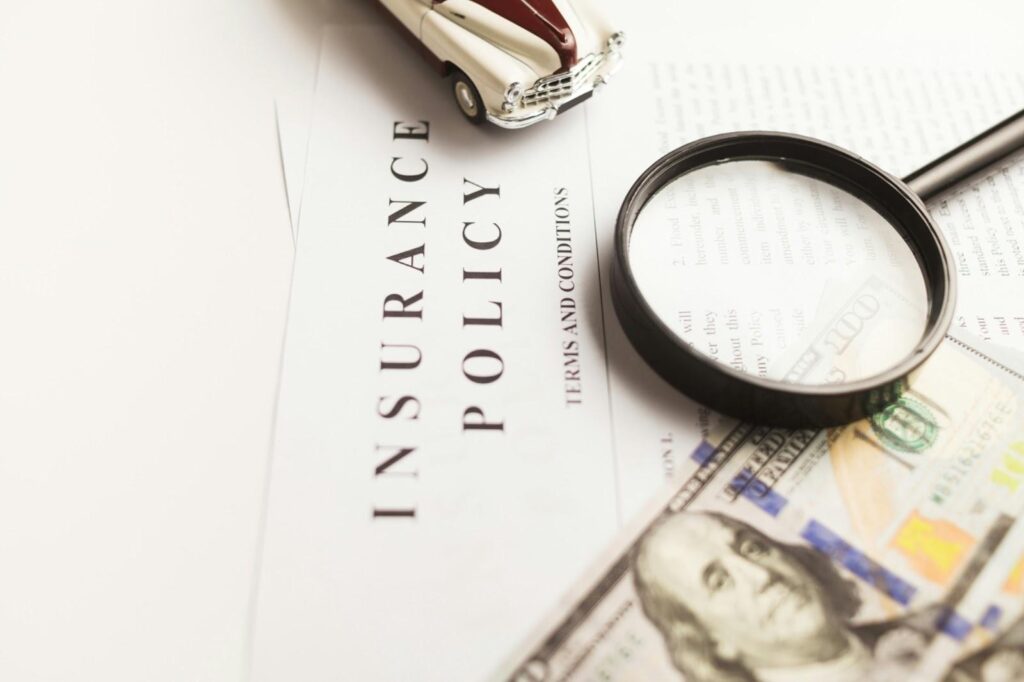Quick Summary
Protecting your personal assets from business losses and lawsuits is essential for safeguarding your wealth. The key lies in separating your personal and business finances, starting with the right business structure, such as an LLC or corporation, which limits your personal liability. But simply forming the right entity isn’t enough. Failing to observe legal formalities or mixing personal and business assets can undermine those protections. To strengthen your defenses, strategies like liability insurance, trusts, and offshore asset protection provide additional layers of security, making it much harder for creditors to access your personal wealth. For more detailed advice and practical steps on asset protection, explore our blog.
Need to Protect Your Personal Assets From Business Risks?
With 36% to 53% of small businesses facing lawsuits each year, and the average liability suit costing at least $54,000, protecting your personal assets is more critical than ever.
Starting and running a successful business — especially in the beginning — can overwhelm your personal life. You have to devote a lot of time and energy to the business. Still, it’s important to maintain a wall between your personal and business life, both for your mental health and your financial future. This process includes learning how to protect personal assets from business lawsuits and losses.
You must take proactive steps to protect your personal assets. Several asset protection strategies can limit your personal liability as the business grows and operates. This article will walk you through those strategies to help you make a more informed decision as you look to the future.
Why Listen to Us?
At Blake Harris Law, we specialize exclusively in asset protection. Our experienced team has assisted clients throughout the United States and globally in safeguarding their wealth using LLCs, offshore trusts, and a variety of tailored legal strategies.
We recognize the difference between genuine protection offered by structures like LLCs and scenarios where they may provide only a false sense of security. This guide is based on our extensive experience helping clients identify risks and develop comprehensive, effective asset protection plans.
Understanding the Risks
Without the right protections for your personal assets, you could be liable for business errors. The ideal option is to reduce risk by using the right business structure that creates a separate business entity from your personal life.
Personal Liability
If you don’t take steps to protect personal assets from business lawsuits, your personal assets could be at risk from any business missteps. Lawsuits can devastate personal wealth if you aren’t using the right business structure because you’ve left those assets open to external threats.
According to the Institute for Legal Reform, the U.S. lawsuit system costs small businesses $160 billion annually, highlighting the significant financial risk involved.
Without protections in place, for example, your personal assets could be subject to liens or seizure if you default on a business loan.
For instance, imagine a client formed a Corporation in California but used company funds for personal expenses, such as paying for their child’s college tuition. When the company was sued, the court pierced the corporate veil due to the mixing of personal and business finances, allowing the plaintiff to pursue the client’s personal assets, including their home and savings.
Business Structure and Liability
When choosing the business structure you want to use, pay particular attention to the protections it gives your personal assets.
Additionally, you need to follow the required operational business protocols. If using a business structure that requires the business owner to keep finances separate, the owner must adhere to these rules. If the owner treats the business assets as personal assets, a court may call this piercing the corporate veil, which reduces or negates some of the liability protections.
Consider the case of Alpha, Bravo, and Echo, who formed a general partnership called Yummy Ube. They hired Echo to handle deliveries, but an accident occurred where Echo was found 1% at fault, resulting in $30 million in medical bills. As a general partnership, Alpha and Bravo were personally liable, putting their personal assets at risk.
Had Yummy Ube been structured as an LLC or Corporation, the business entity could have absorbed the liability, protecting Alpha and Bravo’s personal wealth.
How to Protect Personal Assets from Business
You need to follow certain legal steps to learn how to protect personal assets from business problems and lawsuits. Here are the most fundamental ones to consider:
Separate Business and Personal Finances
Protecting your personal assets starts with separating the business from your personal life and assets. According to a Small Business Association report, 43% of small business owners have been threatened with or involved in a civil lawsuit, often exacerbated by poor financial separation.
To avoid this, you can set up a business structure that helps with this. Additionally, you should avoid taking out loans for the business you secure with personal assets. Don’t use a personal credit card for the business, either.
For example, a small business owner who used their personal credit card for business expenses faced a lawsuit that threatened their personal savings due to commingled finances. Keeping separate accounts could have prevented this risk.
Choose the Right Business Structure
Although some business structures, such as sole proprietorships, are easier to operate, they don’t offer the same level of protection for personal assets as other structures.
Typically, adopting a corporate structure provides significant levels of protection. Such structures include:
- Limited liability companies (LLCs)
- Limited partnerships
- S corps
- C corps
Unlike sole proprietorships and general partnerships, the corporation structures fully separate business and personal assets and liabilities.
For example, forming an LLC can separate your personal assets from business liabilities, as discussed in Blake Harris Law’s guide on protecting personal assets. A real estate investor who formed an LLC for their rental properties avoided personal liability when a tenant sued for property damage.
Formalities and Compliance
Simply setting up a corporation isn’t going to ensure the desired separation, though. You must follow the protocols that govern the use of corporate structure for your business.
For example, if you choose a limited partnership but the partners actively and regularly manage the business, they violate the rules. Should someone sue the business, a judge may rule that the partners’ violations mean the business operates as a general partnership. This ruling could jeopardize the personal finances of the owners.
Insurance Coverage
You may already have property insurance for the company. However, figuring out how to protect personal assets from business losses may involve purchasing liability types of business insurance on top of any policies you already have.
Business Liability Insurance
The primary business liability insurance you should consider is general liability insurance. This coverage protects the business from things like the cost of lawsuits or someone suffering bodily injury on business property.
If you do not have the proper business structure in place, general liability insurance for the business might not protect your personal assets. It helps to educate yourself about what your current policy does and does not cover.
Professional Liability Insurance (Errors and Omissions)
Professional liability insurance is vital for businesses that provide professional services. Also called errors and omissions (E&O) insurance, this coverage protects the business from lawsuits originating in the following:
- Claims of negligent actions from you
- Oversights in the work you do
- Inadequate quality of work
- Giving advice that harms your client
- Failure to complete the expected services
Professional liability insurance covers legal costs for trials, settlements outside of court, and financial judgments against you that occur in court.
In addition to general liability and professional liability insurance, consider malpractice insurance if you’re in a high-risk profession like medicine or law. Many life insurance policies and annuities are also exempt from seizure by creditors, depending on state laws, providing an additional layer of protection.
Cyber Liability
Cyber liability insurance is increasingly vital in today’s digital landscape, where cyber threats are a growing concern. According to IBM’s Cost of a Data Breach Report 2024, the average financial impact of cybercrime in the U.S. amounts to $27.37 million, underscoring the financial risk businesses face.
Cyber liability insurance protects businesses from losses due to cyber attacks, data breaches, and other cyber-related incidents. It typically covers costs such as:
- Notifying affected parties
- Providing credit monitoring for victims
- Legal fees
- Public relations efforts
- Regulatory fines and penalties
- Business interruption losses
Imagine a small retail business that stores customer payment information online. A hacker breaches the system, compromising sensitive data. The business then faces costs for forensic investigations, customer notifications, credit monitoring services, regulatory fines, and potential lawsuits.
Without cyber liability insurance, these expenses could exceed $4 million, potentially bankrupting the business and exposing the owner’s personal assets if the business is not properly structured. With cyber liability coverage, these costs are mitigated, preserving both the business and personal finances.
Commercial Umbrella
Commercial umbrella insurance provides an additional layer of liability coverage beyond the limits of primary policies, such as general liability, auto liability, or professional liability insurance. This extra protection is crucial for safeguarding personal assets from business-related lawsuits that exceed the coverage of underlying policies.
Consider a business owner who operates a construction company and owns rental properties. A tenant slips and falls on a rental property, resulting in a $2 million lawsuit. The owner’s general liability insurance covers only $1 million, leaving a $1 million shortfall.
Without an umbrella policy, the owner’s personal assets, such as savings or property, could be targeted to cover the remaining judgment. A commercial umbrella policy with sufficient limits would cover the excess, protecting the owner’s personal wealth.
Umbrella policies are often cost-effective, with $1 million in coverage typically costing a few hundred dollars annually, according to Progressive Progressive Insurance. Our asset protection attorney Blake Harris describes an umbrella policy as a financial safety net that helps protect your assets from large claims.
However, rising loss ratios indicate that claims are becoming more frequent and severe, emphasizing the importance of securing adequate coverage to protect against catastrophic financial losses.
The table below outlines key policies and their practical applications.
| Insurance Policy | Primary Coverage | Sample Scenario |
| General Liability | Bodily injury and property damage occurring on business premises or due to operations. | A customer slips on a wet floor in a restaurant, breaks a leg, and sues for medical costs and pain and suffering. |
| Professional Liability (E&O) | Negligence, errors, and omissions in professional services provided. | A marketing consultant’s campaign fails to meet contractual promises, causing financial loss for the client who then sues for damages. |
| Cyber Liability | Data breaches, hacking incidents, and costs associated with digital asset recovery. | A law firm’s server is hacked, exposing sensitive client data. Cyber liability covers notification costs, credit monitoring, and legal defense. |
| Commercial Umbrella | Provides an extra layer of liability coverage above the limits of other primary policies. | A product liability lawsuit results in a $3 million judgment, but the company’s general liability policy limit is $1 million. The umbrella policy covers the remaining $2 million. |
Asset Protection Planning
As you determine how to protect your personal assets from business lawsuits and losses, an asset protection trust lawyer can provide key advice for creating a plan. You and your attorney can employ several different techniques in your asset protection plan.
Entity Sheltering
If you must operate a business structure that doesn’t adequately protect your personal assets, you could shelter some of them in an entity. For example, you might be able to use a structure like a family limited partnership (FLP) to protect the assets from someone suing the business.
Asset Allocation
To protect your personal assets from business operations, it’s important to always keep the assets separate. Allocate your business assets separately from your personal assets by:
- Using separate bank accounts
- Applying for credit and loans for the business without using personal assets as collateral
- Track receipts and expenses separately
Trusts and Other Legal Structures
Another option to consider is using a trust to safeguard your personal assets. By placing your assets in a trust, you legally transfer ownership and control to the trust itself. This arrangement can provide significant protection, as creditors seeking to sue your business would not be able to access your personal assets held within the trust.
You may even want to consider incorporating an offshore trust to protect your personal assets from exposure to business activities.
Some exemptions allow the protection of specific assets. Many states allow a homestead exemption, which would protect the value of your home, for example.
Transferring real estate into a trust or using LLCs can shield your property from creditors, as explained in this comparison of trusts vs. LLCs. For instance, a business owner who transfers their rental properties into a trust avoids losing their personal home even when their business faces a lawsuit.
Offshore trusts, such as those managed in the Cook Islands, Nevis, or Belize provide enhanced protection by making assets harder for creditors to access.
A high-net-worth entrepreneur, for instance, may place their investment properties in a Cook Islands trust. When their business faces a lawsuit, the offshore trust can protect their real estate from creditors, as the jurisdiction’s laws make it nearly impossible for plaintiffs to access the assets.
Risk Management Strategies
Another key strategy for how to protect personal assets from business losses is managing your risk. Since 2013, there has been a 320% rise in ADA (Americans with Disabilities Act) lawsuits against small businesses, highlighting the need for compliance with federal regulations.
Contractual Protections
When performing services for clients, always use business contracts. Ensure each contract spells out the work you’ll do and any consequences if you do not live up to your claims. Any contracts should be on your official business letterhead, which helps emphasize the clear separation of your business and personal life.
For example, including a clause in your business contracts that limits your liability to the amount paid by the client can help protect your personal assets. A consulting firm that included such a clause avoided significant personal liability when a client sued for unsatisfactory services.
Employee Management
If you have employees in your business, you should never give them your personal credit card to make small purchases. Neither should you pay your employees or reimburse their expenses with a personal check.
Make sure your business liability insurance protects your business and your personal assets from any errors your employees make that could harm clients.
Compliance With Laws and Regulations
Never try to work around laws or regulations that fit the type of business entity you are using. If the law requires you, as the business owner, to hold official meetings to comply with the rules for operating as a corporation, do it. If you deviate from the rules in any way and for whatever reason, a court could determine you can’t have the protection a corporation provides. A simple oversight like this could leave your personal assets at risk.
Ongoing Monitoring and Review
Once you have a business structure in place that you believe is properly protecting your personal assets, you can’t assume the process is over. Monitoring the structures you use and how your business is changing continuously is important to ensure continued protection.
Regular Assessments
Scheduling regular reviews and assessments of your business is a key step in protecting personal assets from business mishaps and lawsuits. You and your business liability attorney can discuss any changes in your business that could affect the risk to your personal assets.
Regularly reviewing your asset protection plan is crucial, as business circumstances change. For instance, expanding your business or hiring employees may require adjustments to your protection strategies to maintain robust safeguards.
If the business is growing and you’re starting to hire employees, for example, you may need to change the plan to protect your personal assets.
If you schedule regular assessments with your attorney, you can always set up a review between assessments when you know a major change to the business is on the horizon.
Updating the Plan
Any good business structure plan should allow for updates as needed. Very few businesses continue in the same structure throughout the company’s lifetime. Your attorney can set up your initial plan to allow changes to occur with minimal hassles.
Common Mistakes To Avoid
When following steps to protect personal assets from business losses, it’s helpful to look for common mistakes that businesses make.
Underestimating Risks
Some business owners may not believe they have any risk to personal assets because of their industry or the type of work they do. However, even service businesses could have a risk of a lawsuit for failing to live up to a contract or giving bad advice.
Having the right liability insurance can help you avoid some of these risks. However, the right business structure is equally important for protecting personal assets.
Ignoring Business Formalities
After you set up the business structure, always follow the rules required by that structure. If you must hold regular meetings or maintain certain records to ensure your business follows the required regulations, take these actions.
A common mistake is failing to keep accurate records of business and personal finances. Mixing these can lead to personal liability, as seen in cases where courts pierced the corporate veil due to commingled funds, exposing owners’ personal assets.
Don’t assume you can use your credit card for business expenses once or twice without incurring some sort of risk. Someone suing your business and trying to gain access to your personal assets could uncover your one slip-up and use it to convince a judge that you are not following the required rules.
Failing To Review and Update
Your business is constantly changing. Regular reviews of your business structure and operations help keep your personal assets safe during business growth and shifts.
Neglecting Insurance Updates
Failing to update insurance coverage as your business grows can leave gaps in protection. For instance, a business that expanded its operations but did not increase its liability insurance faced significant out-of-pocket costs when sued for a workplace injury, as their outdated policy did not cover the full claim.
Offshore Asset Protection: A Powerful Tool for Safeguarding Your Wealth
While domestic asset protection strategies, such as forming LLCs or using domestic trusts, can provide a certain level of protection, they may not be sufficient in all cases. This is where offshore asset protection comes into play.
Offshore asset protection involves transferring your assets to a trust or other legal entity located in a jurisdiction outside your home country. These jurisdictions often have laws that are more favorable to asset protection, making it difficult for creditors or litigants to access your assets.
One of the most popular offshore jurisdictions for asset protection is the Cook Islands, which is widely recognized for having the strongest asset protection trust laws in the world. The Cook Islands Trust is particularly noted for its robust protections, including a short statute of limitations for fraudulent transfers and the requirement for creditors to prove fraudulent intent beyond a reasonable doubt.
Similarly, Nevis is another favored location, offering strong protection through Nevis LLCs and Nevis Asset Protection Trusts.
At Blake Harris Law, we specialize in helping clients set up offshore asset protection structures tailored to their specific needs. Our firm is exclusively focused on offshore asset protection, and we have built a vast global network of trust companies, banks, and legal professionals to ensure comprehensive protection for our clients.
Why Choose Offshore Asset Protection?
- Enhanced Protection: Offshore jurisdictions like the Cook Islands and Nevis offer stronger legal protections against creditors and litigants.
- Privacy: These jurisdictions provide greater privacy for trust beneficiaries and settlors.
- Diversification: Spreading your assets across different jurisdictions can reduce risk.
How Blake Harris Law Can Help
Our process is straightforward and designed to provide you with peace of mind:
- Consultation: We start with a thorough consultation to understand your specific asset protection needs.
- Structure Design: Based on your needs, we design a customized asset protection plan, which may include offshore trusts, LLCs, or other entities.
- Setup and Funding: We assist you in creating and funding your chosen structure, ensuring all legal requirements are met.
Ongoing Support: We provide continuous monitoring and support to keep your asset protection plan up-to-date and effective.
Let Blake Harris Law Help You Protect Your Personal Assets From Business Lawsuits
Blake Harris can help you find ways to keep your personal and business assets separate from a legal standpoint. Learning how to protect personal assets from business losses and lawsuits is vital to protecting your financial well-being. Contact Blake Harris Law today to create a plan that perfectly fits your business and personal needs.







